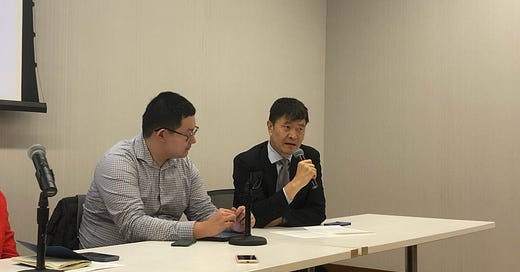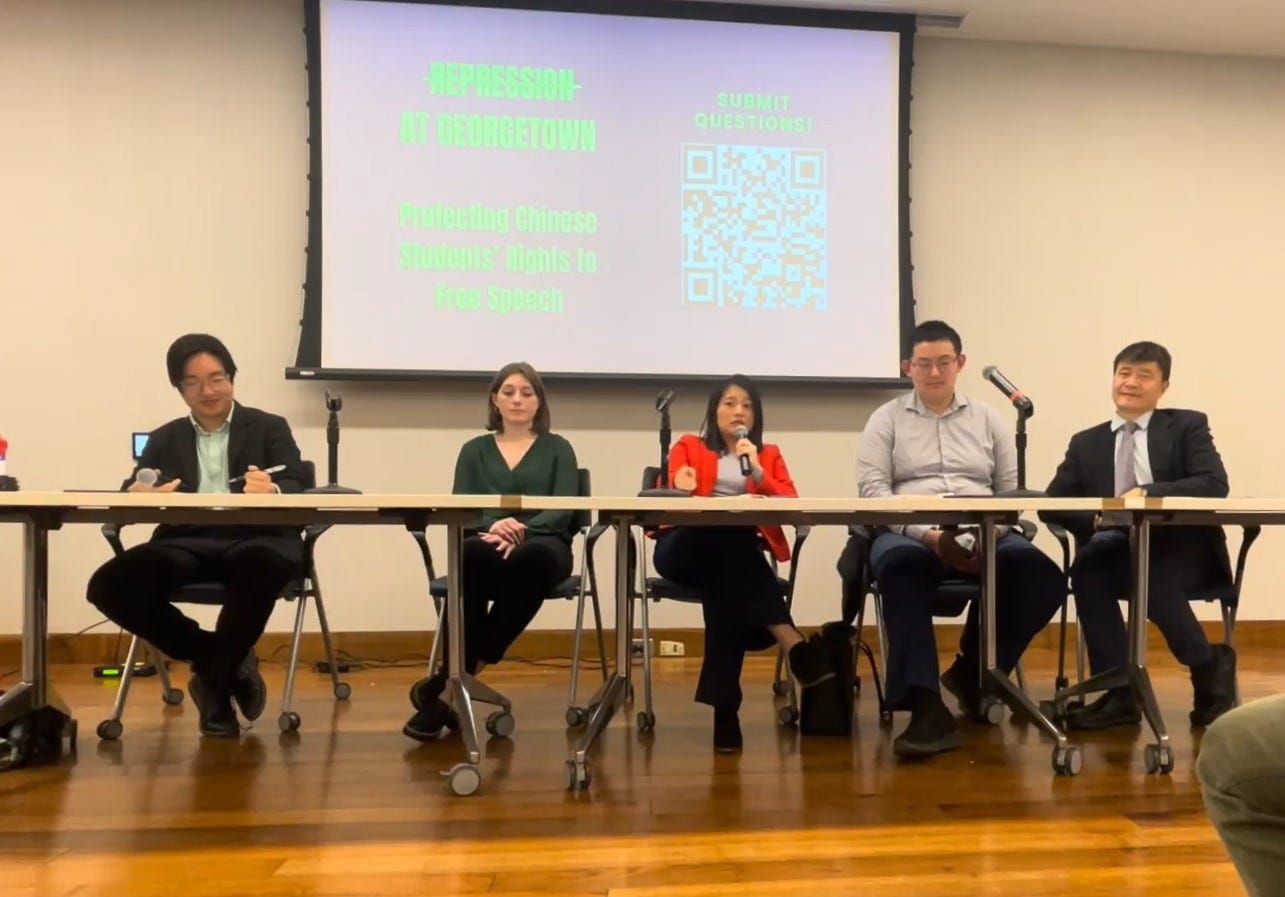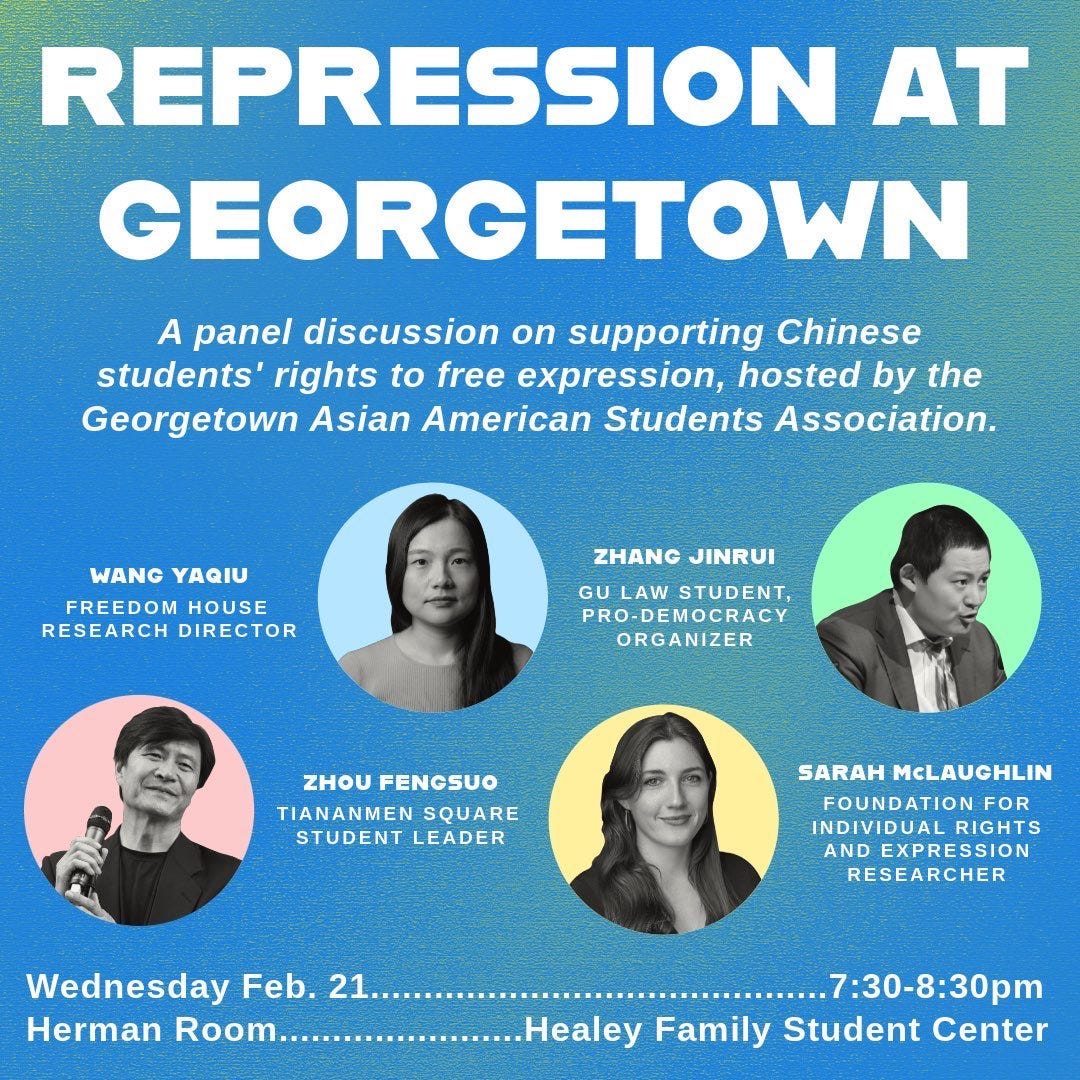HRIC Attends Event on Transnational Repression at Georgetown University
On February 21, HRIC Executive Director Zhou Fengsuo participated in a panel discussion on transnational repression at Georgetown University, titled “Repression at Georgetown: Protecting Chinese students' right to free expression.” Also featured on the panel were Freedom House’s Wang Yaqiu, the Foundation for Individual Rights and Expression’s Sarah McLaughlin, and Georgetown Law student Zhang Jinrui, who is himself a victim of and outspoken advocate against transnational repression. The event was put on by the Georgetown Asian American Students Association.
“Seeing how a lot of students, many of them my former classmates in China…seeing them speaking out against China inside of China, facing very severe pressure from the police and from the public and even from their own parents—seeing that kind of bravery really inspired me to stand up,” Zhang Jinrui explained. Although Zhang was involved in student activism since 2022, he was first targeted by the Chinese government in 2023, when harassment towards students increased significantly. The main form of harassment involved Chinese police calling, visiting, or even detaining the students’ family members back in China, in order to deter them from speaking out. In more serious cases, some students who returned to China were even detained themselves, and the threats escalated, such as targeting their parents’ finances.
HRIC’s Director Zhou spoke about the parallels between his own experience as a student activist in 1989 and the White Paper Movement today. In particular, he pointed to the critical role that overseas students play in speaking out and sending their message back to the Mainland. “Even with the existence of the Great Firewall, there is still a significant number of people who can get access to information, and bring back the message of a free China from outside. That’s where I think young activists are very important.”
Regarding what steps universities should take in response to transnational repression, Sarah McLaughlin suggested that they begin by asking students to anonymously disclose if they have been harassed, and ensure that all students are aware of their right to free speech in the United States. She also pointed out that repression of Chinese international students is an issue that everyone should care about, not only those who are directly affected: for those in host countries, not only does censorship and repression reduce everyone’s access to information, but it also sets the standard for everyone’s rights to be protected or ignored. Wang Yaqiu added that university leadership should speak openly about transnational repression and express support for academic freedom, because it is their duty as a university to protect these rights.
If you are a student who is facing transnational repression, you are not alone. We invite you to reach out to Human Rights in China on Twitter/X at @ZhouFengSuo. In the United States, the FBI has opened a help line specifically aimed at countering transnational repression.






